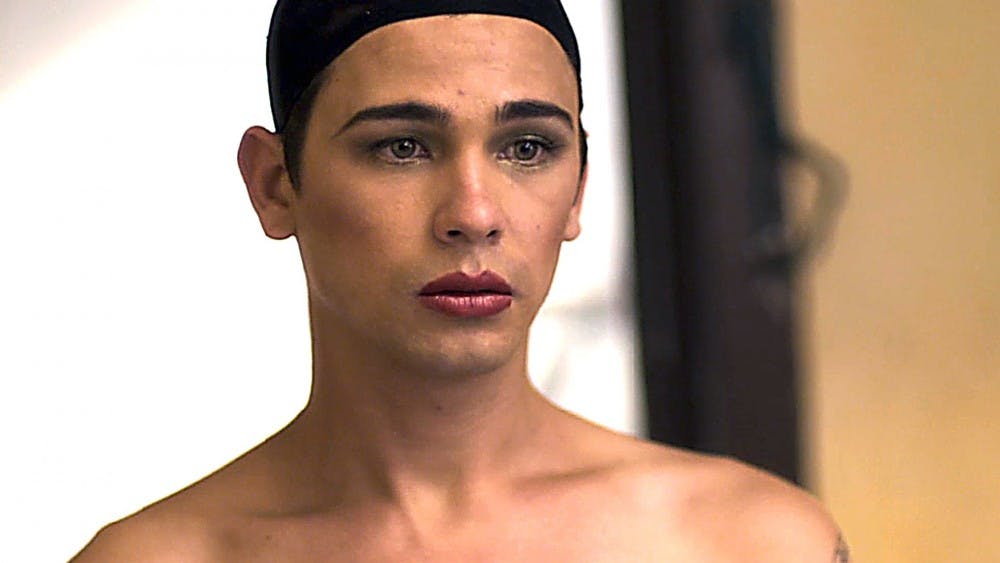“Viva” is a hurricane. Amid fast-paced dialogue, explicit scenes of LGBTQ struggle and an overall passionate delivery, this movie keeps your attention and plays with various social issues while it has it.
It’s an ardent film, sometimes too passionate, with blatant symbolism and a cliché plot. But “Viva” follows through for a fleshed-out and powerful 90-minute narrative.
Hector Medina stars as Jesus, a young hairdresser that yearns to be a drag performer in the Cuban cabaret club he works at. His passion damages his relationship with his father, Angel, played by Jorge Perugorria, and propels a turbulent story that takes twists and turns all along this certain social taboo.
“Viva” portrays drag shows, I believe, quite enthusiastically. These powerful, erotic performances motivate the plot and give the characters something to pursue — and in turn, a reason to grow. Jesus is in the middle of this colorful chaos, and with each performance he becomes stronger and more confident. Yet the world builds up against him. Jesus becomes torn between doing what he loves, keeping his family happy and trying to survive.
It’s a story that’s been told countless times before, and there’s a good chance you’ll predict the plot’s conclusion before the halfway point. However, between the cinematography, the acting and the music, “Viva” succeeds in evoking a lot of emotion and attention from the audience.
The camera work is fantastic. There’s a surplus of dynamic camera movement, and shots are complemented by the soundtrack in a unique manner. There’s a fantastic sense of flow in the film that transcends the pictures we’re seeing on the screen.
The music itself is a lot to write home about. Jazz, hip-hop, cabaret and whimsical acoustic guitar melodies are all wrapped up in a Latin American blanket of sonic satisfaction. There are two exceptions where brief excerpts of mainstream radio-pop songs are used. This broke the mood substantially.
I found the blatant symbolism used throughout the film kind of annoying. It’s no coincidence that Jesus, Angel and Mama all live up to their names to some extent. For all the exposition and prominence made by portraying the gay and trans characters, it’s quite nonsensical for the movie to self-proclaim how “deep” it is.
The truth of the matter is that this movie doesn’t need to be “deep” to convey its message. The social issues that confine these characters’ lives are very much in accordance with real-life politics. Though the film is set in Havana, Cuba, the plot would be no different if set in certain parts of the United States. The drag performers are only allowed to be themselves during a specific place and time, and to quote the film, “are made to feel sorry, to apologize for who (they) are.”
It’s a powerful message, regardless of the cinematic tropes it tumbles through along the way. Some scenes are explicit and initially shocking, but the film doesn’t apologize for its shock value. It embraces it and asks the audience to ponder why these are portrayed to be “shocking” in the first place. That’s probably my favorite aspect of this film.
Check out “Viva” playing at the SUB Theater this weekend, brought to you by the Southwest Film Center.
Audrin Baghaie is a culture reporter and film reviewer for the Daily Lobo. He can be reached at culture@dailylobo.com or on Twitter @AudrinTheOdd.
Get content from The Daily Lobo delivered to your inbox






